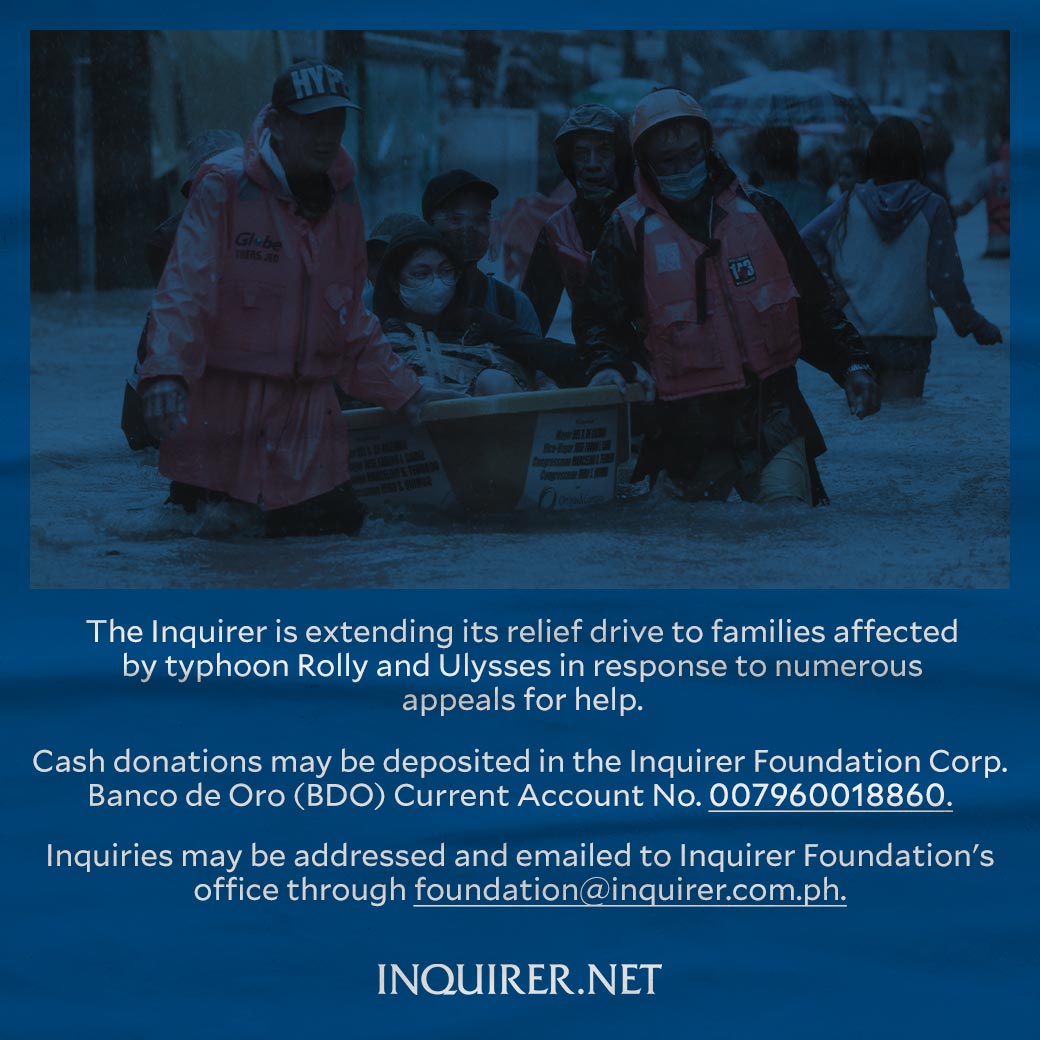‘As of now, we have at least 15 task forces;’ 1 more coming
There is no need for another task force in the government, even for the new typhoon task force formed by President Rodrigo Duterte, the Makabayan bloc in the House of Representatives said on Thursday.
“As of now, we have at least 15 task forces. I think this will not help strengthen our institutions,” Bayan Muna Rep. Carlos Zarate said at an online press briefing.
He described as a “knee-jerk reaction” Mr. Duterte’s decision to form a task force to deal with problems that could be handled by existing government agencies.
Mr. Duterte has formed the “Build Back Better Task Force” to focus on the rehabilitation and recovery of areas devastated by recent typhoons.
The 24-member group will serve as the overall and central body that will ensure “whole-of-government” implementation and monitoring of postdisaster recovery and rehabilitation efforts of the national government in typhoon-devastated areas, beginning with those hit by Typhoon “Rolly” (international name: Goni) in early November and Typhoon “Ulysses” (Vamco) last week, in accordance with guidelines set by the national disaster council in 2019.
The new body will be chaired by the environment secretary, with the public works secretary as cochair.
Other members
The other members are the secretary of defense, who is also chair of the National Disaster Risk Reduction and Management Council (NDRRMC); the secretaries of the interior, energy, trade, transportation, agriculture, human settlements, budget, finance, education, health, social welfare, labor and science; the director general of the National Economic and Development Authority; general manager of the National Housing Authority; the chiefs of the Land Registration Authority, Local Water Utilities Administration, National Electrification Administration, National Irrigation Administration, and Philippine Coconut Authority; and the chair of the Cooperative Development Authority.
Article continues after this advertisementThe task force may call on other government agencies to serve as permanent members with approval of the President.
Functions
Among the group’s functions are ensuring the availability and adequacy of key lifelines, such as basic needs, medical services, electricity, water, telecommunications and transportation; rebuild or repair houses to be more resilient to hazards; and build safer sites for housing under the township approach.
The military, coast guard and other uniformed personnel services will provide logistical and technical assistance in rehabilitation and recovery efforts of the new group.
Funds for the implementation of the rehabilitation and recovery program will be sourced from existing appropriations of the member agencies, the NDRRM Fund, and other sources that the budget department may identify.
Zarate said the new task force was unnecessary because the government already had the NDRRMC.
“In the long term, I think the formation of task forces will not do good in strengthening our agencies that are supposed to respond to the problems faced by the public,” he said.
The party list lawmaker also criticized the President for forming a task force that would investigate graft across all state agencies.
“It will undermine the other institutions like the Office of the Ombudsman and other regular agencies of our government,” Zarate said.
‘Addicted’
ACT Teachers Rep. France Castro, speaking at the same briefing, said the President was addicted to task forces.
“It’s all about task force, emergency power. President Duterte is really addicted to task forces,” Castro said.
“We already have the NDRRMC that should immediately respond, so we do not need to create task forces,” she said.
“We have so many task forces that are useless. They are just additional budget, [but they] do not really respond to the real needs of the public,” Castro said. “What we need is a working President.”
According to Maria Fe Mendoza, a professor of public administration and a former dean of National College of Public Administration and Governance, most of the task forces created so far by the administration are “ad hoc” (temporary) and usually formed for a single purpose.
‘More bad’
“We call this in public administration ‘adhocracy,’ and this may be good but more bad,” Mendoza said. “Good, because the task is easily done since it focuses on a single purpose on a limited time period. Bad, because it duplicates the layers of the bureaucracy. It may be redundant. It defeats, dilutes, weakens the purposes of existing institutions.”
For disasters, Mendoza said, “we have the NDRRMC and the Office of Civil Defense, with the Climate Change Commission and [local governments] to respond.”
For graft prevention, “we have the Ombudsman, the Sandiganbayan, the Commission on Audit, Civil Service Commission, Presidential Anti-Corruption Commission, among [other agencies],” she said. “So why create a task force to investigate corruption until the [end of the President’s term]?”

